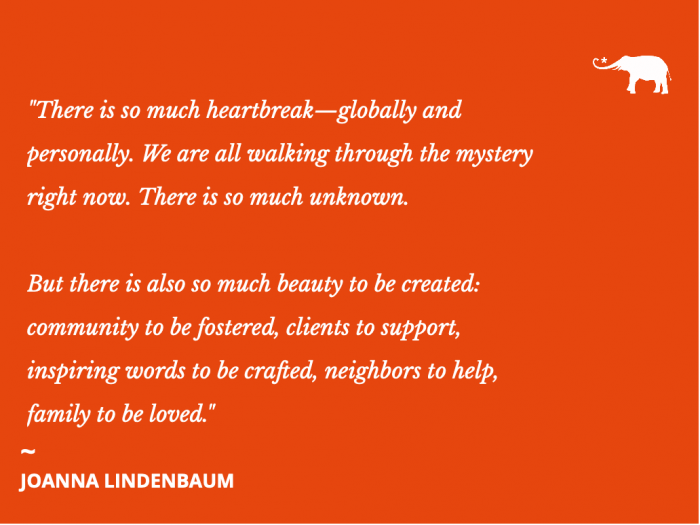View this post on Instagram
Helping our clients & ourselves through these difficult times.
Considering everything that is happening in the world, it has been a really tough time.
Deep sadness and concern overcome me each time I think about the devastation of the pandemic, climate change, those suffering in Haiti, and those in Afghanistan.
As a people, we are holding a lot right now.
And the truth is, whether we’ve realized it or not, we have all been holding a lot for the last 18 months. A collective trauma has impacted so many of us, no matter what our individual experience has been.
Ongoing crises—whether they touch us directly or not, no matter our “attitude” or mindset—are going to take their toll. It can show up as anxiety, extreme fatigue, sleeplessness, impatience, rashness, grief, fear, and so much more.
It’s so important to take care of ourselves as best we can through these difficult times and take care of each other.
I have actively made more time and space to take care of myself, my nervous system, friends, and family.
We must hold each other with special care right now.
Here are some powerful concepts to help us through these times:
1. Tend to your own emotions (and body and nervous system).
We can only help others if we are in a grounded, well-taken-care-of place—physically and emotionally.
Allow yourself to feel all the feelings coming up. Make space for your emotions. Work with your fears. Journal. Get Rest. Eat well. Unplug when you can. Slow down. Make intentional space for things that delight you. Ask for support when you need it.
Strengthen your container so that you can hold a strong container for others.
2. Honor exactly where people are—do not bypass.
You may not be feeling extreme fear or anger or sorrow at all that is happening in the world, but someone you know is likely feeling it—a lot.
If there is an urge inside of you to tell someone, “It’s not that bad”—“things are already looking better,” “at least ‘X,'” “Spirit has our back”—move away from the urge.
When we don’t honor exactly where people are emotionally, don’t make space for what they are feeling, we, in essence, are bypassing them. And the moment we bypass is the moment we have ceased to deeply honor and make space for them. It is the moment we are no longer able to support them.
It may not feel comfortable to sit in the shadows with others, but this is precisely what is required of us. We must do the inner work to be comfortable with grief, worry, anger, fear, and beyond—lean into it.
3. Check your privilege.
If you hold a certain privilege that another does not—whether it’s related to race, religion, gender, sexual orientation, body, language, economic level, or anything else—you run the risk of bypassing them and their perspective.
Something that doesn’t feel dangerous to you because of your background may feel (and actually be) dangerous to someone with less privilege than you.
Watch yourself for this. Check your privilege so that you can hold an equitable, nurturing space for all.
4. Give permission for the mess and the mystery.
A lot of times, we want to tie issues up with a neat bow. This might be appropriate for certain situations but can be a disservice in many other situations.
When big things happen, it is not always appropriate to process them in neat, structured ways. It is not always appropriate to come to a clear “learning” and resolution about it by the end of one conversation.
Permit the mess and the mystery. It is the only authentic and empowering way through.
5. Learn to hold pain and hope simultaneously.
Holding space for pain, sorrow, fear, and anger is not mutually exclusive from holding hope and opportunity. It is truly an art to be able to hold both at once, but when you can, others will feel seen and heard by you. When people can express themselves fully and deeply, there is peace in that—there is hope. Holding pain and hope is one of the most healing opportunities, period.
6. Check-in.
If you don’t already have a habit of doing so, this is a moment to check in with people. Let them know that you’re there—that you’re thinking of them. A short check-in can go such a long way to support someone in feeling loved, cherished, and cared for. This, in turn, can help them feel more regulated and grounded.
It is possible for each one of us to discover our best selves in the rubbles of the dark moments. To find the deeper level of our generosity, our activism, our spirit, our feistiness, our devotion, our love, our brilliance, our creativity. To come face to face with the “us” that we always wished and dreamt and knew we were but never quite knew how to find.
Let this be the moment we find it. And claim it.
Let’s make this moment count.

No comments:
Post a Comment